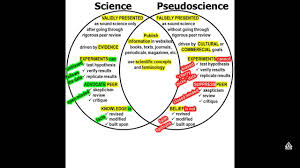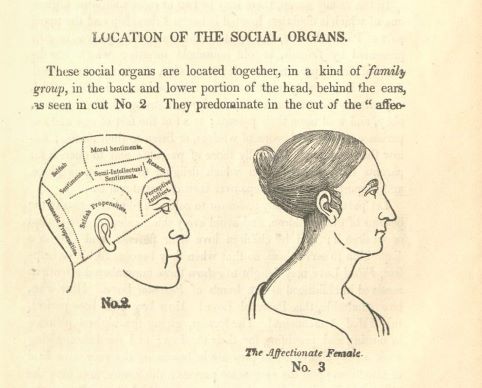 "Pseudoscience is popular because it confirms what we believe; science is unpopular because it makes us question what we believe.
"Pseudoscience is popular because it confirms what we believe; science is unpopular because it makes us question what we believe. "Good science, like good art, often upsets our established ways of seeing the world."
—Carol Tavris, social psychologist.
With Gwyneth Paltrow’s new Netflix docuseries, “The Goop  Lab”, set to launch on January 24, 2020, the quasi-healthcare approach known as alternative medicine is similarly set to bask in the mainstream television streaming limelight. Topics for the six-episode show include energy healing, the use of psychedelic drugs, exorcisms, cold therapy, anti-aging, and female sexuality.
Lab”, set to launch on January 24, 2020, the quasi-healthcare approach known as alternative medicine is similarly set to bask in the mainstream television streaming limelight. Topics for the six-episode show include energy healing, the use of psychedelic drugs, exorcisms, cold therapy, anti-aging, and female sexuality.
 Lab”, set to launch on January 24, 2020, the quasi-healthcare approach known as alternative medicine is similarly set to bask in the mainstream television streaming limelight. Topics for the six-episode show include energy healing, the use of psychedelic drugs, exorcisms, cold therapy, anti-aging, and female sexuality.
Lab”, set to launch on January 24, 2020, the quasi-healthcare approach known as alternative medicine is similarly set to bask in the mainstream television streaming limelight. Topics for the six-episode show include energy healing, the use of psychedelic drugs, exorcisms, cold therapy, anti-aging, and female sexuality. More generally, Goop the brand has promoted other similar alternative medicine topics, such as past life regression therapy— an unethical treatment in the case of mental health disorders—and has provided a platform for the Medical Medium, a brand that promotes potentially dangerous treatments, such as celery juice for addiction.
The National Cen ter for Complementary and Integrative Health defines alternative and complementary medicine (CAM) as health care approaches that are typically not part of conventional medical care. The term "alternative medicine" is preferred when a non-mainstream practice is used in lieu of conventional medicine, whereas the term "complementary medicine" is preferred when a non-mainstream practice is used together with conventional medicine.
ter for Complementary and Integrative Health defines alternative and complementary medicine (CAM) as health care approaches that are typically not part of conventional medical care. The term "alternative medicine" is preferred when a non-mainstream practice is used in lieu of conventional medicine, whereas the term "complementary medicine" is preferred when a non-mainstream practice is used together with conventional medicine.
 ter for Complementary and Integrative Health defines alternative and complementary medicine (CAM) as health care approaches that are typically not part of conventional medical care. The term "alternative medicine" is preferred when a non-mainstream practice is used in lieu of conventional medicine, whereas the term "complementary medicine" is preferred when a non-mainstream practice is used together with conventional medicine.
ter for Complementary and Integrative Health defines alternative and complementary medicine (CAM) as health care approaches that are typically not part of conventional medical care. The term "alternative medicine" is preferred when a non-mainstream practice is used in lieu of conventional medicine, whereas the term "complementary medicine" is preferred when a non-mainstream practice is used together with conventional medicine.
While it has been argued that alternative medicine practices can be rife with ethical difficulties and that proponents often promote a philosophy that is predicated on logical fallacies, it is important to develop an understanding of exactly what it is that compels many to seek these kinds of treatments.
One obvious and important driver towards complementary medicine is the unfortunate reality that current conventional medicine treatments do not work for everyone. Indeed, conventional medicine operates using the scientific method as a mechanism of knowledge acquisition and there is simply more knowledge to be acquired.

There is currently a range of treatments that boast varying levels of both evidence and theoretical support that are classified under the CAM umbrella. This means that some, but not all, current treatments that are understudied and considered to be CAM (e.g., some psychedelic-based treatments for some mental health disorders) might one day reach the somewhat arbitrary threshold where they can be considered to fall under the purview of evidence-based medicine.
But not everyone who has failed to benefit from conventional medicine uses, finds benefits from, and ultimately believes in CAM. What other factors might be at play?
A study published in Personality and Individual Differences has offered an initial empirical glimpse into the psychology and attractiveness of CAM approaches.
This particular study administered self-report questionnaires to a sample of over 3,000 people (mostly university students) to assess attitudes towards CAM approaches, individual differences in thinking styles (intuitive versus rational), paranormal beliefs, magical beliefs about food and health, and values.
The researchers discovered two main findings:
1) A tendency towards intuitive thinking (and not rational thinking) was positively associated with a belief in alternative medicine.
2) The strongest predictors of CAM beliefs were believing in the paranormal and having magical food and health beliefs.